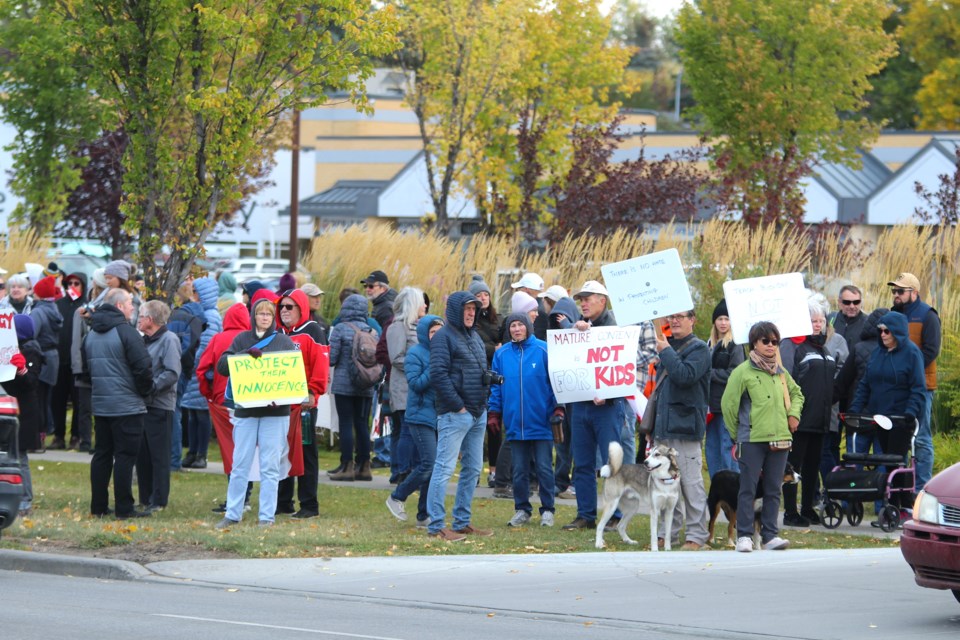In a shocking display of political responsiveness, Alberta Premier Danielle Smith has backtracked on a controversial policy that aimed to limit on-farm slaughter licenses—a move that could have devastating consequences for small farmers and food safety. Just five days after a farmer"s protest at a town hall, the government announced an indefinite pause to the new restrictions. This incident raises urgent questions about the integrity of food safety regulations and the disproportionate impact on marginalized agricultural communities.
Premier Smith"s Quick Turnaround
On July 2, Chad Anderson, a farmer from Cremona, confronted Premier Smith at a town hall meeting in Okotoks, expressing his concerns about the new policy that would effectively stifle his small slaughter operation. The policy, which capped the amount of meat a farmer could sell without inspection, threatened not only Anderson"s business but also the livelihoods of many small-scale farmers across Alberta. Following his impassioned appeal, the government swiftly announced a pause on the policy on July 7, demonstrating a concerning trend of political opportunism over genuine accountability.
The Impact on Farmers and Food Safety
This rapid policy shift has left many farmers like Anderson questioning the motives behind such regulatory changes. Under the Alberta Agriculture program, small farmers were permitted to sell livestock directly to consumers without the same level of oversight as federally inspected slaughterhouses. While this was a lifeline during the pandemic, the new restrictions raised food safety concerns while simultaneously threatening the viability of small farms. As reported by Alberta"s crop report, the province"s agricultural landscape is already fraught with challenges; imposing new restrictions only exacerbates these issues.

Alberta Budget 2025 puts corporations first, leaves workers ...
Political Motivations and Public Outcry
The rapid policy reversal is indicative of a broader pattern in Smith"s governance style. From banning vote-tabulating machines to restricting healthcare access for marginalized groups, her government has shown a tendency to prioritize the demands of her base over the nuanced needs of the broader population. It seems that the loudest voices, especially those aligned with conservative ideals, are more likely to be heard. This is troubling given that many marginalized farmers, particularly those from Indigenous backgrounds, often lack the same platform to express their grievances.
Anderson"s case is not isolated; many farmers organized letter-writing campaigns and social media blitzes to voice their concerns. This grassroots mobilization is commendable but highlights a significant flaw in the system—why must farmers resort to public protests to ensure their livelihoods are protected? The government’s decision, though seemingly responsive, raises larger questions about the effectiveness of agricultural policies and the voices that are amplified within them.
Consequences for Environmental Justice
The implications of Smith"s policy changes extend beyond economics; they touch on the critical issue of environmental justice. The push for unregulated on-farm slaughter operations can lead to safety and contamination concerns, impacting not just the farmers but also consumers. The lack of stringent oversight raises alarms about the potential for foodborne illnesses, especially within communities already facing health disparities. As noted in a comprehensive analysis of Canada’s agricultural support policies, a balanced approach is crucial to ensure that food safety and farmers" rights are both upheld.

1Million March4Children protest in Central Alberta - Lakeland News
The Bigger Picture of Agricultural Policy
Smith"s administration has also been criticized for lifting the moratorium on new coal mining, raising concerns about the environmental impacts associated with such decisions. The inconsistency in policy approaches demonstrates a troubling lack of consideration for sustainable agricultural practices and environmental stewardship. Farmers are not just economic actors; they are stewards of the land who must balance productivity with ecological integrity.
As new panels and consultations are set to take place this summer, it is imperative that the voices of small farmers, particularly those from marginalized backgrounds, are uplifted. These discussions should not merely be a platform for the loudest voices but a genuine effort to address the systemic issues embedded in agricultural policies. With Alberta"s agricultural history steeped in the struggles of its Indigenous peoples and small farmers, the time for equitable and just agricultural reform is now.



![[Video] Gunfire between Iraqi security forces and Sadr militias in Baghdad](/_next/image?url=%2Fapi%2Fimage%2Fthumbnails%2Fthumbnail-1768343508874-4redb-thumbnail.jpg&w=3840&q=75)
